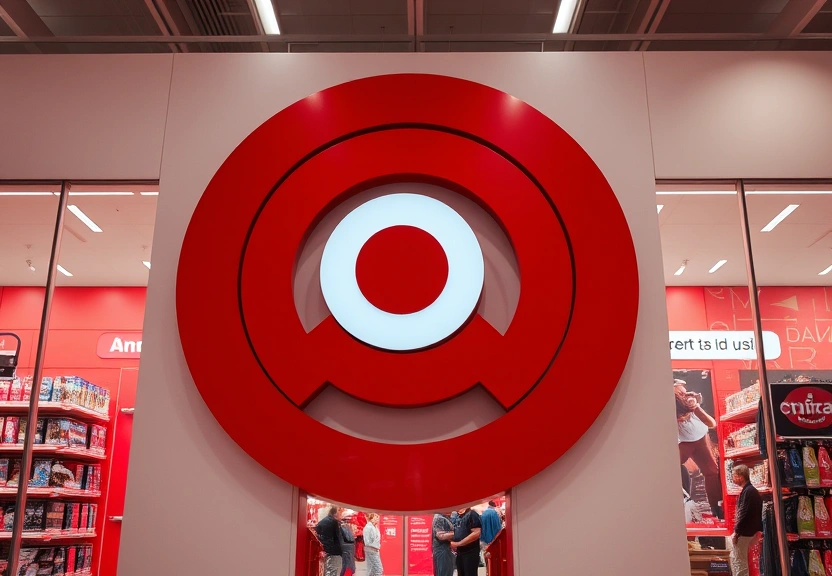Could Target Become the Next Retail Giant Like Best Buy?
In the ever-evolving landscape of retail, companies are constantly vying for the top spot in their respective markets. One of the most intriguing questions in the industry is whether Target could ascend to become a retail giant akin to Best Buy. With the rapid changes in consumer behavior, technological advancements, and increasing competition, understanding the strategies that could propel Target to similar heights is essential for stakeholders and consumers alike.

This article delves into the current state of the retail market, the competitive landscape between Target and Best Buy, and the strategies that could potentially elevate Target to a retail giant. We will analyze the similarities and differences between these two retailers, explore Target’s existing strengths, and highlight the challenges that may lie ahead. By the end, readers will have a comprehensive understanding of Target’s potential in the retail sector.
The Retail Landscape: An Overview
The retail industry has undergone significant transformations over the past decade, largely driven by changes in consumer expectations and technological advancements. E-commerce has surged, with companies like Amazon leading the charge, forcing traditional retailers to adapt or face decline. Amid these challenges, Best Buy has managed to carve out a significant niche by focusing on technology and consumer electronics, whereas Target has positioned itself as a one-stop shop for various consumer needs.
As we explore the potential for Target to become a retail giant like Best Buy, it’s essential to understand the current market dynamics. This includes the shift towards omnichannel retail, the importance of customer experience, and the role of innovation in staying competitive.
Comparing Retail Strategies: Target vs. Best Buy
To evaluate whether Target can become a retail giant like Best Buy, we need to dissect the core strategies employed by both retailers. Although both companies operate in the retail space, their approaches diverge significantly.
Target’s Retail Strategy
Target has built its brand on offering a wide array of products, from groceries to electronics, at competitive prices. The company has succeeded in creating a strong brand identity centered around quality and design. Some key components of Target’s strategy include:
- Diverse Product Range: Target offers everything from clothing to home goods, making it a convenient shopping destination.
- Strong Private Label Brands: Target has invested heavily in its private label offerings, which often provide higher margins than third-party products.
- Omnichannel Experience: With a robust online shopping platform and same-day delivery options, Target has embraced the shift towards omnichannel retail.
- Focus on Customer Experience: Target has made substantial investments in store redesigns and customer service to enhance the shopping experience.
Best Buy’s Retail Strategy
Best Buy, on the other hand, has focused primarily on consumer electronics and tech products. Its strategies include:
- Expert Consultation: Best Buy offers customers expert advice and assistance, making it a go-to destination for tech enthusiasts.
- Price Matching: The company has a price match guarantee, ensuring that customers receive the best possible prices.
- Robust Online Presence: Best Buy has invested significantly in its e-commerce platform, providing customers with a seamless shopping experience.
- In-Store Experiences: The retailer offers various in-store experiences, including workshops and product demonstrations, to engage customers.
Market Competition: The Challenges Ahead
While both Target and Best Buy have carved out their respective niches, competition in the retail industry is fierce. The rise of e-commerce giants and discount retailers poses significant challenges. For Target to elevate its status to that of a retail giant like Best Buy, it must address several key challenges:
- Competition from E-Commerce: Companies like Amazon are continuously expanding their product offerings and improving delivery times, making it crucial for Target to enhance its online presence.
- Supply Chain Management: Efficient supply chain management is vital to keep costs low and ensure product availability in stores and online.
- Consumer Expectations: Today’s consumers expect personalized shopping experiences and fast service, requiring retailers to invest in technology and customer service.
Target’s Strengths: What Sets It Apart?
Despite the challenges, Target possesses several strengths that could facilitate its rise as a retail giant. These strengths include:
- Brand Loyalty: Target has cultivated a loyal customer base that values its unique product offerings and shopping experience.
- Innovative Partnerships: Collaborations with designers and brands create buzz and excitement around new product launches.
- Community Engagement: Target’s commitment to social responsibility and community engagement resonates with consumers, enhancing brand loyalty.
Future Outlook: Can Target Compete with Best Buy?
Looking ahead, the question remains: Can Target effectively compete with Best Buy and become a retail giant? The answer lies in its ability to adapt and innovate in response to market changes. Some potential strategies that Target could employ include:
- Enhancing Technology Integration: By investing in technology to improve the customer experience, Target can ensure it meets modern consumer expectations.
- Expanding Product Offerings: Target could expand its electronics section to include more competitive tech products, potentially attracting Best Buy customers.
- Building Strategic Partnerships: Collaborating with tech companies could help Target enhance its product offerings and customer service.
Frequently Asked Questions (FAQs)
1. What makes Target different from Best Buy?
Target offers a wider range of products, including groceries and home goods, while Best Buy specializes in consumer electronics.
2. Can Target compete with online giants like Amazon?
Yes, Target can compete by enhancing its online shopping experience, ensuring quick delivery options, and offering unique product assortments.
3. How does Target’s pricing compare to Best Buy?
Target often uses competitive pricing strategies, including private label products, while Best Buy emphasizes price matching to attract customers.
4. What are the primary challenges Target faces in the retail market?
Target must contend with increasing competition, changing consumer expectations, and the need for efficient supply chain management.
5. Is Target’s brand loyalty a significant advantage?
Yes, Target’s strong brand loyalty is a crucial advantage, as it encourages repeat purchases and enhances customer retention.
Conclusion
As the retail landscape continues to shift, Target stands at a crossroads with the potential to ascend to the ranks of retail giants like Best Buy. By leveraging its strengths, embracing innovation, and adapting to market challenges, Target can carve out a more significant space for itself in the competitive retail environment. While the journey may be fraught with obstacles, the retailer’s commitment to enhancing the customer experience and expanding its product offerings could very well lead it to retail stardom. The future of Target is bright, and with the right strategies in place, it could soon be recognized as a leading retail giant.
📰 Original Source
Este artigo foi baseado em informações de: https://www.investing.com/news/stock-market-news/is-target-the-next-best-buy-4186340


